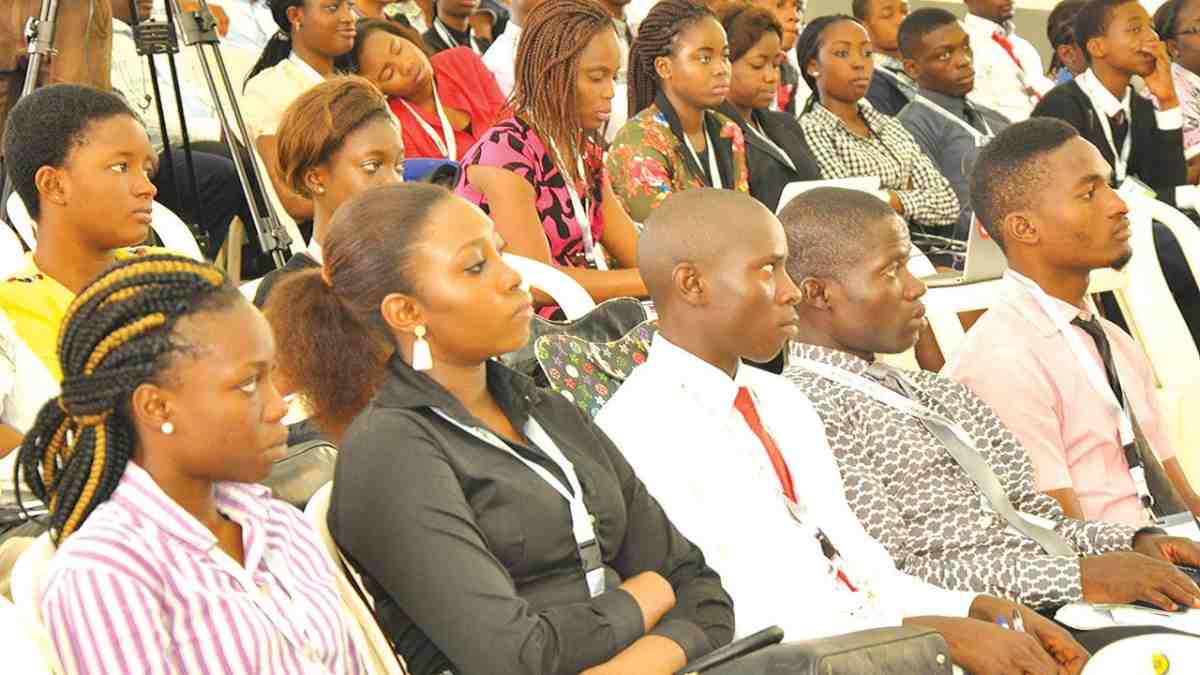By: Amy Longland
Peace activist and Cameroonian National Youth Delegate to the Commonwealth Youth Council, Bochum Samuel, leads the way in showing what a difference young people can make in curbing the spread of violent extremism.
After attending training provided by the Commonwealth Secretariat Countering Violent Extremism (CVE) Unit, he has set up a ‘Peace Academy’ in his native Cameroon, offering in-person and online courses in peacebuilding, governance, development, environment, diversity, multiculturalism and civic education.
Stories like Bochum’s are an inspiration to young people across the Commonwealth.
Meanwhile, the serious health risk of the COVID-19 pandemic continues to dominate world headlines – but less reported are the ways the virus is threatening lives indirectly.
The pandemic is placing an extraordinary burden on young people. As is often the case in times of global crisis, young people are disproportionately affected and the last to be considered.
The combined effects of conflict, lifestyle disruptions, and physical isolation can be damaging to the mental health of young people, and may result in unhealthy long-term coping mechanisms which, in some cases, could lead to violent attitudes and behaviours.
Violent extremists have not wasted the opportunity to exploit this perfect storm. Facing an unprecedented and inescapable situation, communities across the Commonwealth are increasingly vulnerable to malignant influences which are gaining ground in both the real and virtual worlds.
After attending training by the CVE Unit on how to bolster cohesion and resilience in communities, Bochum now organises conferences, seminars and workshops in his native Cameroon which bring young people together and equip them with the skills and knowledge to take leadership roles and have more of a say in decision-making at local, regional and national levels.
His programmes, which teach young people critical thinking, career development, entrepreneurship and business creation, continue to be championed by the CVE Unit, and have won the backing of Cameroon’s University of Buea, Ministry of Youth Affairs as well as traditional, religious leaders and civil society organisations.
Conditions brought about by the pandemic are not favourable for young people like Bochum. Restrictions put in place in preventing the spread of COVID-19 have become the new norm in some countries, and the repression of vibrant youth-driven social movements can lead to further tensions and the driving of wedges between people.
The sudden global shift from physical to virtual has exacerbated existing inequalities, compounded fragilities within communities and bolstered the internet as a breeding ground for intolerance, discrimination, racism, xenophobia, homophobia, antisemitism, fake news and hate speech.
In these uncertain times, when governments do not have all the answers, more than ever people are desperate for a lens through which to understand and grapple with a terrifying global pandemic – and, for many young people, the internet has become that lens.
Taking advantage of the inadequate responses of many governments to COVID-19, violent extremists use the internet to provide simple answers to people’s existential questions, blaming migrants, ethnic or religious minorities for the spread of the virus, describing it as a “divine punishment” or disseminating conspiracy theories.
However, despite movement restrictions, youth activists have adapted and taken the lead to drive change, organising movements and protests either virtually or in a COVID-19 safe manner across the Commonwealth.
The CVE Unit is continuing to help young people make their voices heard, encouraging participation in decision-making through a range of programmes, including The Power of Youth to Build Peace in The Commonwealth Programme as well as a series of discussion papers on countering violence extremism, all spearheaded by young people.
Examples of how these initiatives are empowering young people to turn away from violent extremism are evident across Commonwealth member states.
In South Africa, a youth choir known for reaching the finale of America’s Got Talent in 2019 composed, performed and filmed a musical rendition of the World Health Organization’s (WHO) Coronavirus safety advice.
In Nigeria, a youth driven technology innovation hub called the Co-creation Hub, partnered with the African CDC to develop innovative communication-related apps focused on the delivery of vetted information in various African languages.
The reach and efficacy of young people in delivering COVID-19 and CVE programmes and initiatives across the Commonwealth are resources and contributions that governments can no longer afford to overlook.
The secondary effects of the pandemic in conflict-affected areas are complex, and youth leadership and agency need to be supported in partnerships based on trust and equality.
National and global leaders are increasingly recognising that excluding young people from decision-making is detrimental to society as a whole, and that their intrinsic resilience is needed to help communities recover their strength and rebuild resistance.
Young people can often operate in spaces where governments or the international community cannot, making them vital implementation partners in the progress being made against violent extremism across the Commonwealth.
Amy Longland is the Programme Officer, Countering Violent Extremism (CVE Unit) of Commonwealth Secretariat

 Join Daily Trust WhatsApp Community For Quick Access To News and Happenings Around You.
Join Daily Trust WhatsApp Community For Quick Access To News and Happenings Around You.


